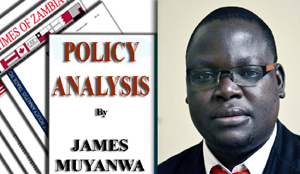 I HAVE constantly observed that there is something seemingly wrong with the players in the Zambian market and the market forces, particularly on the prices.
I HAVE constantly observed that there is something seemingly wrong with the players in the Zambian market and the market forces, particularly on the prices.
From the basic economics, we are told that in a liberalised economy, like Zambia’s, the prices are determined by market forces.
To remind some readers who may have forgotten, market forces are, according to Collins English Dictionary, economic factors that affect the availability of goods and services and the demand for them.
The action of market forces means that the cost of something rises if demand for it rises and the amount available remains constant and vice versa.
In a free enterprise system prices are determined in the market and economists say they are determined by the relationship between supply and demand.
What that means is that, all things being equal, if the cost of production or raw materials is reduced the prices for the resultant product should also become lower.
But not in Zambia!
For instance, even after the marked reductions in the prices of fuel in the country, the prices of major commodities and services have remained unchanged.
Despite the incessant appeals by the government for the mini-bus operators to reduce the fares, for instance, the amounts have generally remained static.
Another example is the mealie meal trading where despite the government’s efforts towards the reduction of the prices for the staple food the situation has remained the same.
The government through Agriculture and Livestock minister Given Lubinda went up to the extent of negotiating for the reduction of the wholesale mealie meal prices by at least K4.
The ultimate targets for that reduction were the final consumers who, however, have hardly benefited from the efforts.
Instead, the traders have decided to pocket the increased markup while the consumers continue getting the staple food at high cost.
This is notwithstanding the highest-ever bumper harvest recorded during the 2013/2014 farming season.
Just imagine how the traders and bus operators would have reacted if the adjustments in the fuel prices were an increase.
They could have overnight increased the prices of goods and the fares without even waiting for the new stocks!
This, unfortunately, justifies the now infamous direct subsidies on consumption because it is the only surest way of ensuring that the government efforts reach the intended beneficiaries – the consumers.
While putting this article together, I thought that perhaps the government should have found a way of giving back the K4 to the consumers directly every time they are buying mealie meal, for instance.
It should have worked out a mechanism where whenever the consumers are going to buy the commodity they would pay the price of one bag minus the K4.
The K4 may look small but multiply it by the number of backs consumers countrywide buy per month!
At another level a local economic analyst recently suggested that the government should reduce the taxes for the mines so that it would reap later.
His argument was that if the mining investors are made to pay lower taxes they will record higher profits which they would plough back in expansion and new projects.
This, according to him, will lead to the creation of more jobs for the people, who are all going to pay taxes, hence making the government benefit more.
That sounds intelligent and in normal circumstance things would work out that way.
But players in the Zambian economy are rigid and do not respond to changes as normally expected.
There is no guarantee, therefore, that if charged lower taxes the mining investors would choose to plough back more of their returns into the projects.
Most likely they would, instead, increase the externalised funds as the result of the increased profits from the reduced taxes.
If that happens, how would the Zambians – the owners of these minerals – benefit from the sector?
Given the rigidity of the Zambian economic players, I can liken the situation to a scenario where one has some seed and is faced with the question of whether to plant the seed in a neighbour’s field or eat it today.
To expect that the friend will share the produce with you just because you planted in his/her field may be wishful thinking unless there is some binding agreement to that effect.
Therefore, if the government is to forego the charging of some taxes now, there is need to come up with some legal framework which will bind the investors to the responsibility of creating jobs through expansions, for instance.
For comments call: 260 0955 431442, 0977 246099 or email: jmuyanwa@gmail.com.






